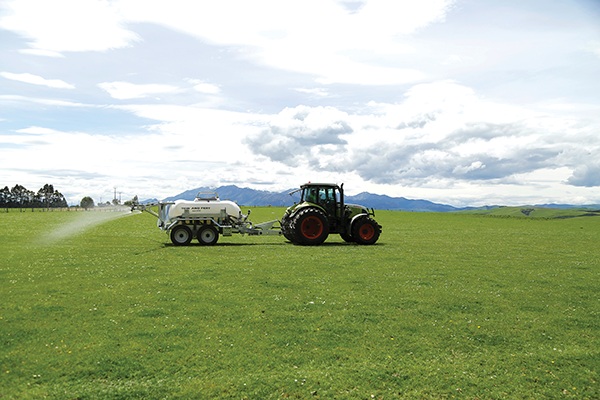Insect pests can cause significant damage to forage brassica crops by reducing drymatter yields by more than 30% and making them less palatable to stock.
Until recently, most growers would have reached for a broad-spectrum organophosphate insecticide if they saw caterpillars chewing or aphids sucking on their valuable forage crop – killing everything, including beneficial insects, in the process.
But now growers and agronomic advisors are increasingly aware of the value of maintaining beneficial insect populations in a crop, to help control insect pests naturally. At the same time, chemical manufacturers are developing softer chemistry that is more selective. This means growers can now kill the bad guys (caterpillars, aphids and leafminer) without harming the good guys (hoverflies, lacewings and ladybirds).
Minecto Star is one of the latest products that is compatible with integrated pest management (IPM) by being soft on beneficial insects, while controlling the key insect pests of forage brassica crops including caterpillars, leafminer and aphids.
Minecto Star does this by combining two IPM compatible insecticides (cyantraniliprole and pymetrozine) in one convenient formulation, which is applied at the low application rate of just 150g/ha. The cyantraniliprole component is a Group 28 insecticide that is extremely effective against caterpillars and leafminer, with suppression of aphids. Pymetrozine is a Group 9 insecticide that is highly effective on aphids, with systemic activity inside that plant to control aphids for up to three weeks after application, including new growth.
The combination of these two active ingredients makes Minecto Star one of the most effective options if both aphids and caterpillars are present, which is likely over summer months when pest numbers can increase rapidly. It also reduces the risk of aphids becoming resistant to Group 28 insecticides by having a Group 9 insecticide in the mix with a different mode of action.
According to Syngenta, one of the most common questions they get asked, especially in summer months, is whether you need to add Pirimor to Minecto Star for additional aphid control. Pirimor is a fast-acting aphicide with contact, translaminar and fumigant activity, which also has the benefit of being IPM-compatible. The strong fumigant activity is a unique feature of Pirimor that is particularly useful to help reach aphids within the canopy that are not directly contacted by spray droplets.
Syngenta’s technical sales manager for South Canterbury and Southland, Nigel Goodwin, says the best advice he can give on whether Pirimor is required would be: “if the crop can be sprayed before aphid numbers exceed six aphids per plant and the crop is relatively open so the spray can reach the target, then Minecto Star can be applied alone”.
“If you can see more than six to 10 aphids per plant, and aphid numbers are increasing, and the crop is tall or dense, then you need to add Pirimor to Minecto Star – and apply it as soon as possible. Aphid numbers can explode from six to more than 100 aphids per plant in just a few days over summer, so spray timing is very important,” Goodwin says.
“Good spray coverage is also key for good results, especially on mature forage brassica crops, so robust water rates are required and you always need to add a wetting agent to improve leaf coverage on hard-to-wet brassica leaves. Aphids can also produce a waxy coating when present in high numbers, so the wetting agent can make a big difference to the result.”
Minecto Star and Pirimor are available from PGG Wrightson, Farmlands and other rural merchants. For more information contact your local merchant or phone Nigel Goodwin on 021 984 079.





